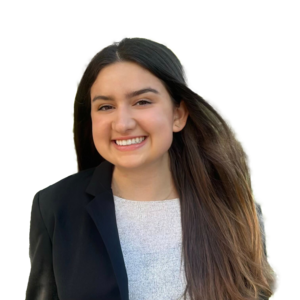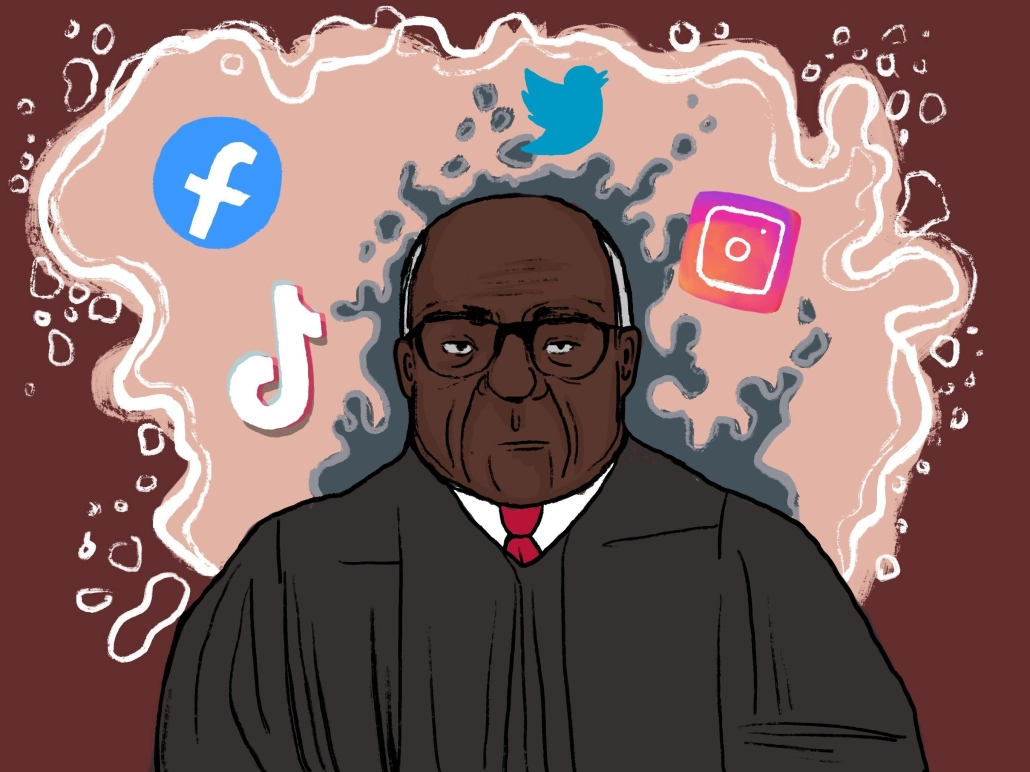Social media censorship is constitutional
The Supreme Court agreed to decide on Florida and Texas’s control over social media content.
The Supreme Court agreed to decide on Florida and Texas’s control over social media content.


Like many college students, I spend a significant amount of time on social media. It feels like the entire world is at my fingertips. I follow friends, family, brands, athletes, influencers and media outlets, all of which expose me to a wealth of information.
But not all of this information is credible: The prevalence of misinformation on social media has become an increasing concern. In response, companies such as Meta — the parent company of Facebook and Instagram — have taken on the authority of censorship.
However, the Texas and Florida legislatures passed laws in 2021 which put civilians at risk by preventing large social media companies from censoring their platforms. As a result, NetChoice — a coalition of trade associations, eCommerce businesses and online consumers — will face Texas and Florida in front of the Supreme Court this term.
The Texas law prohibits large social media companies from de-platforming or censoring accounts based on their views or geographic location, while the Florida law prohibits them from banning political candidates.
The First Amendment explicitly states that Congress cannot pass a law that abridges the freedom of speech. However, the Constitution does not address whether private companies can make their own decisions regarding what is said on their online platform.
In a speech, Texas Gov. Gregg Abbott claimed the First Amendment is under assault because of overzealous social media censors. He said social media should not be censored because the United States was “built on free speech and healthy public debate.”
“Healthy debate” does not consist of false, misleading or defamatory information. Abbott and other conservatives compare social media platforms to the “modern-day public square” — the place where everyone goes to talk or exercise their freedom of speech.
The internet, not specific social media platforms, is the modern-day public square. Social media apps are similar to the various shops and restaurants in a town square. In the same way that private entities are entitled to establish their own rules regarding free speech, social media apps have the right to do so as well.
If a social media user feels that their freedom of speech is being suppressed by a particular app, they have the choice to stop using that app. They can even start their own social media platform, as former President Donald Trump did with Truth Social.
The internet is not censored to the same degree as social media apps. Because of the lack of regulation on the internet, anyone can create their own blog or website and express themselves freely. Private entities have the right to regulate content, which doesn’t necessarily infringe on an individual’s right to free speech, but rather is a part of the terms and conditions of using the platform.
From Trump’s notorious posts on X, formerly known as Twitter, to misinformation about the Russia-Ukraine war to various forms of hate speech, social media users have been bombarded with harmful content on a daily basis. Censoring harmful or false content on social media is not biased.
The Texas and Florida laws were proposed by conservative governors in large states that lean right. The proponents of these laws argued they were protecting the free speech rights of social media users.
One reason for the conservative advocacy of these laws is a reaction to Trump’s ban from X after the Jan. 6, 2021 insurrection (Trump has since been welcomed back onto X by Elon Musk, its new owner).
They also do not want social media companies to censor “political information” that is often misleading or outright false, but which is used to sway public opinion. Social media companies will censor false or harmful information, like posts arguing that the 2020 election was not legitimate.
Over the next few months, the Supreme Court will hear the arguments and the justices will deliberate whether big tech companies can censor social media users in Texas and Florida. Not only will this determine the extent to which false and harmful content will be spread to users in these states, but it will also create a precedent that could likely determine whether or not social media can be censored in other states.
Hopefully, the Court rules in favor of the tech companies, or else we may be scrolling through Instagram pondering whether each and every post is true.
Laya Albert is a sophomore writing about the significant issues in states beyond California. Her column, “The Other 49,” runs every other Monday.
We are the only independent newspaper here at USC, run at every level by students. That means we aren’t tied down by any other interests but those of readers like you: the students, faculty, staff and South Central residents that together make up the USC community.
Independence is a double-edged sword: We have a unique lens into the University’s actions and policies, and can hold powerful figures accountable when others cannot. But that also means our budget is severely limited. We’re already spread thin as we compensate the writers, photographers, artists, designers and editors whose incredible work you see in our daily paper; as we work to revamp and expand our digital presence, we now have additional staff making podcasts, videos, webpages, our first ever magazine and social media content, who are at risk of being unable to receive the compensation they deserve.
We are therefore indebted to readers like you, who, by supporting us, help keep our paper daily (we are the only remaining college paper on the West Coast that prints every single weekday), independent, free and widely accessible.
Please consider supporting us. Even $1 goes a long way in supporting our work; if you are able, you can also support us with monthly, or even annual, donations. Thank you.
This site uses cookies. By continuing to browse the site, you are agreeing to our use of cookies.
Accept settingsDo Not AcceptWe may request cookies to be set on your device. We use cookies to let us know when you visit our websites, how you interact with us, to enrich your user experience, and to customize your relationship with our website.
Click on the different category headings to find out more. You can also change some of your preferences. Note that blocking some types of cookies may impact your experience on our websites and the services we are able to offer.
These cookies are strictly necessary to provide you with services available through our website and to use some of its features.
Because these cookies are strictly necessary to deliver the website, refusing them will have impact how our site functions. You always can block or delete cookies by changing your browser settings and force blocking all cookies on this website. But this will always prompt you to accept/refuse cookies when revisiting our site.
We fully respect if you want to refuse cookies but to avoid asking you again and again kindly allow us to store a cookie for that. You are free to opt out any time or opt in for other cookies to get a better experience. If you refuse cookies we will remove all set cookies in our domain.
We provide you with a list of stored cookies on your computer in our domain so you can check what we stored. Due to security reasons we are not able to show or modify cookies from other domains. You can check these in your browser security settings.
These cookies collect information that is used either in aggregate form to help us understand how our website is being used or how effective our marketing campaigns are, or to help us customize our website and application for you in order to enhance your experience.
If you do not want that we track your visit to our site you can disable tracking in your browser here:
We also use different external services like Google Webfonts, Google Maps, and external Video providers. Since these providers may collect personal data like your IP address we allow you to block them here. Please be aware that this might heavily reduce the functionality and appearance of our site. Changes will take effect once you reload the page.
Google Webfont Settings:
Google Map Settings:
Google reCaptcha Settings:
Vimeo and Youtube video embeds:
The following cookies are also needed - You can choose if you want to allow them:
